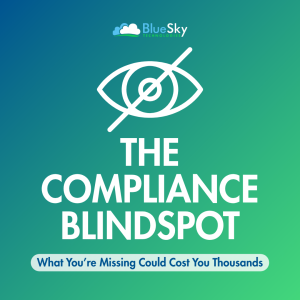 Many small business owners operate under the misconception that regulatory compliance is only a concern for large corporations. However, in 2025, this belief couldn’t be further from the truth. As regulations tighten across industries, small businesses are becoming a growing focus for enforcement agencies.
Many small business owners operate under the misconception that regulatory compliance is only a concern for large corporations. However, in 2025, this belief couldn’t be further from the truth. As regulations tighten across industries, small businesses are becoming a growing focus for enforcement agencies.
Why Compliance Matters More Than Ever
Regulatory bodies like the Department of Health and Human Services (HHS), the Payment Card Industry Security Standards Council (PCI SSC), and the Federal Trade Commission (FTC) have increased their focus on data protection and consumer privacy. Noncompliance isn’t just a legal issue—it’s a financial and reputational risk that can threaten the very foundation of your business.
Key Regulations Affecting Small Businesses
- HIPAA (Health Insurance Portability and Accountability Act)
If your business handles protected health information (PHI), HIPAA compliance is non-negotiable. Recent updates emphasize:
- Mandatory encryption of electronic PHI
- Regular risk assessments to identify vulnerabilities
- Employee training on data privacy and security protocols
- Incident response plans for data breaches
In 2024, a small healthcare provider was fined $1.5 million for failing to meet these standards—proof that even smaller operations are not immune to enforcement.
- PCI DSS (Payment Card Industry Data Security Standard)
If you accept credit card payments, PCI DSS applies to you. Key requirements include:
- Secure storage of cardholder data
- Regular network monitoring and testing
- Implementation of firewalls and encryption protocols
- Access control measures to restrict data access
Sources say noncompliance can result in monthly fines ranging from $5,000 to $100,000 depending on the severity and duration of the violation.
- FTC Safeguards Rule
If your business collects financial information from customers, you are required to:
- Develop a written information security plan
- Designate a qualified individual to oversee security measures
- Conduct regular risk assessments
- Implement multifactor authentication (MFA)
Violations can lead to penalties of up to $100,000 per incident—and $10,000 personally for individuals responsible.
Real-World Consequences of Noncompliance
This isn’t all just hypothetical. A small medical practice recently suffered a ransomware attack due to outdated security protocols. The result? A $250,000 fine from the HHS and a serious loss of patient trust.
When you fail to prioritize compliance, the consequences are real: legal exposure, financial loss, and long-term damage to your reputation.
Steps to Ensure Compliance
- Conduct Comprehensive Risk Assessments: Evaluate your systems regularly to identify and address vulnerabilities.
- Implement Strong Security Measures: Use encryption, firewalls, and MFA to protect sensitive data.
- Train Your Employees: Educate your team on compliance requirements and best practices.
- Develop an Incident Response Plan: Have a clear, tested plan in place in case of a breach.
- Work with Compliance Experts: Partner with professionals who can guide you through the complexities of regulatory compliance.
Don’t Wait Until It’s Too Late
Compliance isn’t just a legal obligation; it’s a core part of protecting your business’s integrity and longevity. Ignoring these requirements could cost you more than just money, it could damage your reputation.
Ready to Assess Your Compliance Posture?
We can help you identity potential vulnerabilities, strengthen your defenses, and ensure you’re meeting regulatory requirements. Don’t let a hidden compliance gap put your business at risk.
Use the form on this page to schedule your FREE Consultation.


